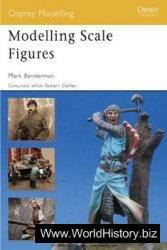Events in Latin America compounded Eisenhower’s difficulties. During World War II the United States, needing Latin American raw materials, had supplied its southern neighbors liberally with economic aid. In the period following victory a hemispheric mutual defense pact was signed at Rio de Janeiro in September 1947, and the following year the Organization of American States (OAS) came into being. In the OAS, decisions were reached by a two-thirds vote; the United States had neither a veto nor any special position.
But as the Cold War progressed, the United States neglected Latin America. Economic problems plagued the region, and in most nations reactionary governments reigned. Radical Latin Americans accused the United States of supporting cliques of wealthy tyrants, whereas conservatives blamed insufficient American economic aid for the plight of the poor.
Eisenhower, eager to improve relations, stepped up economic assistance. Resistance to communism nonetheless continued to receive first priority. In 1954 the government of Jacobo Arbenz Guzman in Guatemala began to import Soviet weapons. The United States promptly dispatched arms to neighboring Honduras. Within a month an army led by an exiled Guatemalan officer marched into the country from Honduras and overthrew Arbenz. Elsewhere in Latin America, Eisenhower, as Truman had before him, continued to support regimes that were kept in power by the local military.
The depth of Latin American resentment of the United States became clear in the spring of 1958, when Vice President Nixon made what was supposed to be a goodwill tour of South America. Everywhere he was met with hostility. In Lima, Peru, he was mobbed; in Caracas, Venezuela, students pelted him with eggs and stones. He had to abandon the remainder of his trip. For the first time the American people gained some inkling of Latin American opinion and the social and economic troubles that lay behind it.
Events in Cuba demonstrated that there was no easy solution to Latin American problems. In 1959 a revolutionary movement headed by Fidel Castro overthrew Fulgencio Batista, one of the most noxious of the Latin American dictators. Eisenhower recognized the Castro government at once, but the Cuban leader soon began to criticize the United States in highly colored speeches. Castro confiscated American property without providing adequate compensation, suppressed civil liberties, and entered into Close relations with the Soviet Union. After he negotiated a trade agreement with the Soviet Union in February 1960, which enabled the Russians to obtain Cuban sugar at bargain rates, the United States retaliated by prohibiting the importation of Cuban sugar into America.
Khrushchev then announced that if the United States intervened in Cuba, he would defend the country with atomic weapons. “The Monroe Doctrine has outlived its time,” Khrushchev warned. Shortly before the end of his second term, Eisenhower broke off diplomatic relations with Cuba.




 World History
World History









